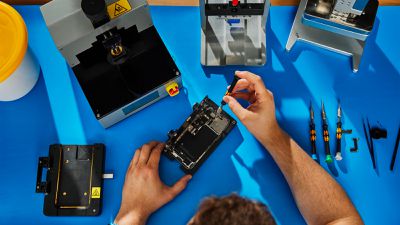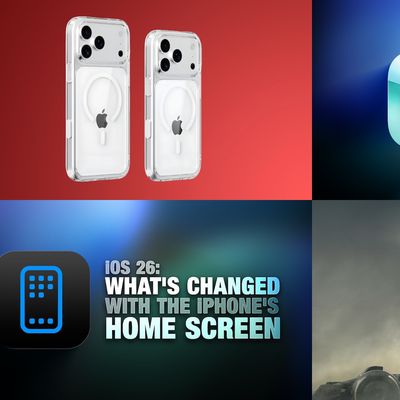France Investigating Apple Over Alleged 'Planned Obsolescence' Arising From Serialized Repair Parts
France has been investigating Apple since December after the organization Halte à l'Obsolescence Programmée (HOP) accused the company of "planned obsolescence" over serialized repair parts, according to French news agency AFP.

Apple's self-service repair program requires customers to enter a device's serial number when ordering parts for devices like iPhones and Macs, and any parts ordered need to be paired with the same device after installation. HOP said this policy gives Apple the potential to restrict repairs to approved technicians only, and limit the functionality of devices repaired with uncertified parts. The organization added that Apple's self-service repair program is bad for the environment given that Apple ships large and heavy tools to customers.
Do-it-yourself repair website iFixit also expressed disappointment about the serial number requirement when Apple's program launched last year.
"Integrating a serial number check into their checkout process is a dire omen and could allow Apple the power to block even more repairs in the future," said iFixit's Elizabeth Chamberlain. "Building the technology to provision individual repairs easily sets Apple up as the gateway to approve—or deny—any repairs in the future, with parts from any source."
The Paris Public Prosecutor's office is handling the investigation, and has yet to formally accuse Apple of any wrongdoing in relation to HOP's complaint. The organization previously filed a complaint about Apple throttling the maximum performance of some older iPhone models with aging batteries when necessary in order to prevent the devices from unexpectedly shutting down, leading to a €25 million fine in France.
Note: Due to the political or social nature of the discussion regarding this topic, the discussion thread is located in our Political News forum. All forum members and site visitors are welcome to read and follow the thread, but posting is limited to forum members with at least 100 posts.
Popular Stories
A new Apple TV is expected to be released later this year, and a handful of new features and changes have been rumored for the device.
Below, we recap what to expect from the next Apple TV, according to rumors.
Rumors
Faster Wi-Fi Support
The next Apple TV will be equipped with Apple's own combined Wi-Fi and Bluetooth chip, according to Bloomberg's Mark Gurman. He said the chip supports ...
Apple will launch its new iPhone 17 series in two months, and the iPhone 17 Pro models are expected to get a new design for the rear casing and the camera area. But more significant changes to the lineup are not expected until next year, when the iPhone 18 models arrive.
If you're thinking of trading in your iPhone for this year's latest, consider the following features rumored to be coming...
Apple's next-generation iPhone 17 Pro and iPhone 17 Pro Max are only two months away, and there are plenty of rumors about the devices.
Below, we recap key changes rumored for the iPhone 17 Pro models.
Latest Rumors
These rumors surfaced in June and July:A redesigned Dynamic Island: It has been rumored that all iPhone 17 models will have a redesigned Dynamic Island interface — it might ...
The long wait for an Apple Watch Ultra 3 is nearly over, and a handful of new features and changes have been rumored for the device.
Below, we recap what to expect from the Apple Watch Ultra 3:Satellite connectivity for sending and receiving text messages when Wi-Fi and cellular coverage is unavailable
5G support, up from LTE on the Apple Watch Ultra 2
Likely a wide-angle OLED display that ...
iPhone 17 Pro and iPhone 17 Pro Max models with displays made by BOE will be sold exclusively in China, according to a new report.
Last week, it emerged that Chinese display manufacturer BOE was aggressively ramping up its OLED production capacity for future iPhone models as part of a plan to recapture a major role in Apple's supply chain.
Now, tech news aggregator Jukan Choi reports...
The iOS 26 public beta release is quickly approaching, while developers have recently gotten their hands on a third round of betas that has seen Apple continue to tweak features, design, and functionality.
We're also continuing to hear rumors about the iPhone 17 lineup that is now just about right around the corner, while Apple's latest big-budget film appears to be taking off, so read on...



















